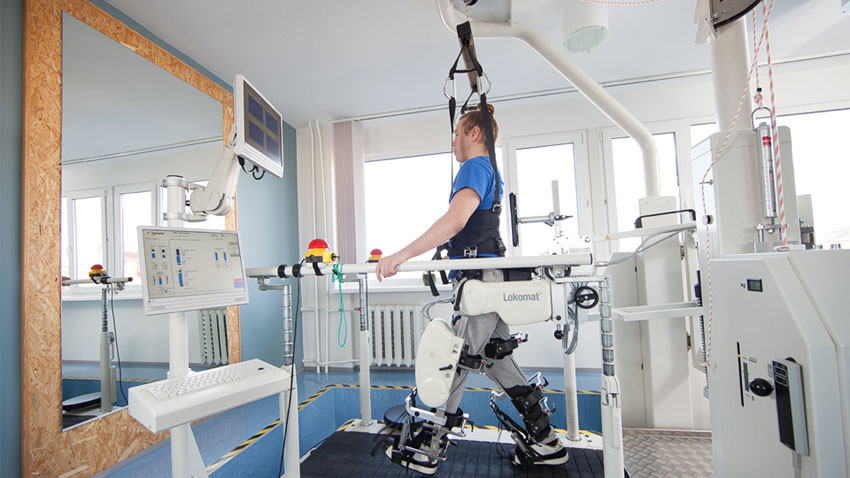More than 680,000 people in Bulgaria have permanent disabilities, according to data from the National Social Security Institute for 2017. Only 10 percent of them are lucky to find a job. This is largely due to the reluctance of employers to hire people for whom they need a special room or to make changes in the way of work, taking into account the needs of their new employee. Social isolation caused by inaccessible urban environment and impossibility to meet needs on their own are two major problems. In recent years, the big cities in this country have been slowly changing their appearance and seem to become a little bit more accessible to people with disabilities. This is not the case when it comes to rehabilitation opportunities, which could help many of them have a better life. The reason for this is simple - the lack of sufficiently specialized equipment tailored to the age and needs of patients, which forces them to look for opportunities for expensive rehabilitation abroad. Some of them choose to go to clinics in the Austrian capital Vienna. The constant influx of people from Bulgaria made Bulgarian ophthalmologist Dr. Anelia Hochwarter launch a campaign to buy a device called Lokomat, which would allow for the recovery of patients after severe traumas to take place in their homeland:
This is gait rehabilitation robot device that helps patients learn to walk again. This is done using sensors located on the patient's body that take into account which muscle group is working well and which is not. Patients who have experienced brain trauma, stroke, or have diseases such as child hood cerebral palsy, multiple sclerosis, and Parkinsonism, lose their ability to walk and this device, which is part of rehabilitation programs in all Western clinics, greatly alleviates patients’ condition. In Austria, for example, there are already 28 Lokomats located in 24 clinics. There is a 50% chance of success with this device. Of course, we do not expect the patient to run in a marathon or become an athlete, but rather to gain some autonomy and improve their quality of life.
According to Associate Professor Ivan Chavdarov, head of a specialized hospital for treatment of children with cerebral palsy, there are several devices for robotic rehabilitation in Bulgaria but they are easily damaged and expensive to maintain. It was therefore very important that the manufacturer offered a long guarantee. The price of 280,000 euros is not small, although it includes delivery, training of doctors, and a two-year guarantee. On the other hand, funds that go for treatment of Bulgarian patients abroad will decrease significantly if a similar device is used in Bulgaria. To purchase the device, Dr. Hochwarterhopes to receive support from business as well as citizens and opened special donation accounts in BGN and EUR on her name in UniCreditBulbank:
Anelia Hochwarter
Donation campaign:
"Lokomat for Bulgaria"
IBAN: BG65 UNCR 7000 1522 7289 56 (in BGN)
IBAN: BG60 UNCR 7000 1522 7289 49 (in Euro)
BIC (SWIFT): UNCRBGSF
English: Alexander Markov
Photos: private library
Teacher-student interaction is in focus during the seventh International "Erasmus+" week, organized by the "Sts. Cyril and Methodius" University of Veliko Tarnovo in support of Bulgarian Sunday schools abroad. The university in..
In a tradition that began informally over 40 years ago and has evolved over time , thousands of people crowded onto Bulgarian beaches on 1 July to welcome the sunrise. July Morning was celebrated in many places with rock concerts that continued..
In the centre of Varshets a new singing fountain now rises. The modern landmark has transformed the central square, quickly becoming a favourite venue for the locals and for the guests to the town. The installation immediately attracts the attention..
During rescue excavations in the western necropolis of the ancient city of Heraclea Sintica near the village of Rupite, archaeologists unearthed a..

+359 2 9336 661
